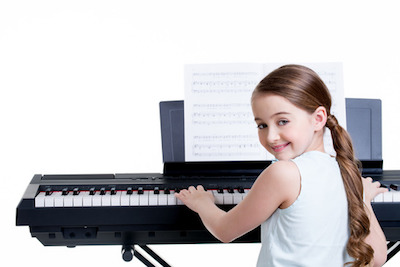For many budding musicians, they move towards playing the piano in order to fulfill their desires of joining a band. With big dreams of a musical future, a keyboard gives them the ability to create music in a variety of ways, record it, even upload it for the world to hear all with the touch of a few buttons.
Dating back hundreds of years, an acoustic piano is one of the most common musical instruments in history. A piano contains a series of strings stretched over a metal frame. As these strings are struck by felt-covered hammers, vibrations occur on the soundboard, creating the piano’s sound. A lot of factors go into creating proper sound: environment, temperature of the room, humidity, quality of the parts, quality of the design to name but a few.
A digital piano takes away these variables by replacing the strings with key-triggered samples. These are digital recordings of an acoustic piano, designed to replicate the sound when an appropriate key is pressed. Since there are no strings, action, or soundboards, it’s a more compact instrument. That makes them easier to carry, easier to store, easy to maneuver into the tightest of places.
The quality of a digital piano comes down to the quality of the action. Different manufacturers use different methods of applying weights to the keys to replicate an acoustic piano’s process. It’s up to you to decide if the feel of the keyboard is right for you.
If a student chooses to play songs with full accompaniment, then an arranger keyboard might be the ideal choice. These instruments combine features of synthesizers and sequencers, allowing the user to quickly change and select a style and song form based on their current desires. It allows you to choose to play in the style you want. That means choosing backing instrument sounds, like horns or drums, chord progressions, musical genres such as Latin or Jazz. Entry level arrangers offer dozens of styles, with more sophisticated choices growing in the upper levels.
While it’s easy to get lost in the details of what an arranger keyboard has to offer, pay attention to the format as well. Microphone input, digital mixer, screen displays, weighted keys, amplifiers, speakers and more will all add to the final price, but will also give the user the flexibility to create the type of music they desire.
A keyboard should be able to:
- Create convincing sounds
- Produce high-quality music
- Feel close to an acoustic piano
- Provide ample resistance
An arranger keyboard should have:
- Amplification system
- Metronome
- Auto-accompaniment
- Effective percussion styles
- USB or smart technology for saving and loading
Have additional questions on selecting the perfect keyboard for your budding musician? Ask us today.

